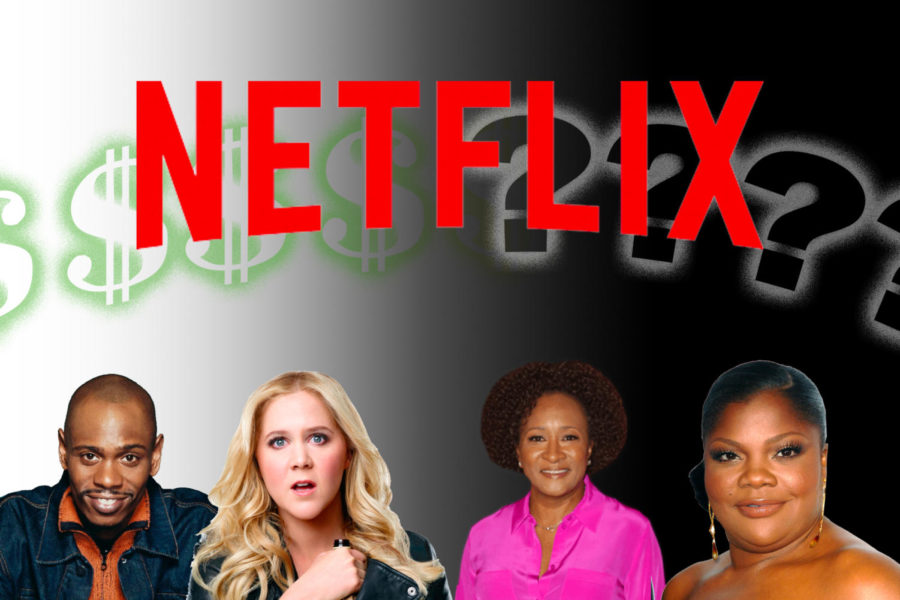It’s More Than Money: Netflix Furthers the Gender Pay Gap
Money: who deserves it, and who gets it? The gender pay gap has been a recurring topic of concern in American society, reinforcing the unfair bias in the United States economy. Now, the gender pay gap issue has manifested itself in the ubiquitous streaming giant Netflix.
According to Time Magazine, the issues began when renowned female comedians Mo’Nique and Wanda Sykes voiced their opinions over the what they consider unfair offers presented to them by Netflix. Compared to other offers received by fellow comedians such as Chris Rock, David Chappelle, and Amy Schumer, the offers presented to the two women of color pale in comparison. The issue has not only resonated with the comedians themselves but their fans, as well– many supporters of Mo’Nique and Sykes are boycotting the streaming service in hopes to help shed light on the issue that plagues our nation’s economy.
To understand the issue, many more factors other than pay must be considered. Because of the country’s capitalistic economy, entertainers and professionals are supposed to be paid based on the popularity or quality of their work alone. This was Netflix’s argument concerning Mo’Nique. However, the company seemed to have backtracked with their statements. Netflix, concerning the Mo’Nique situation, states that they do not judge what they pay “off of a résumé”; however, the streaming company also stated to Mo’Nique that David Chappelle and Chris Rock received their multi-million dollar contracts because of their “legendary status”, selling out comedy tours and previous promotional activities. To Mo’Nique and many others, this was the same as the résumé that the company “doesn’t consult” when hiring talent. To most, Netflix’s reasoning for the situation was hypocritical, unfair, and biased.
When Mo’Nique took to Instagram to address and publically dismiss the company, fellow female comedians, including many people of color, stood with Mo’Nique by sharing their similar experiences with the company. Wanda Sykes, seven-time African American Emmy winner, stood by Mo’Nique as well, taking to Twitter to detail how Netflix offered her “less than half” of Mo’Nique’s original $500k proposal. Both of the veteraned female comedians, as well as many people upset about the gender pay and racial pay gap, are perplexed as to how two women of color who has been in show businesses for 50+ years can only collectively obtain around $750k in contract deals.
As much as it may not seem, Netflix and other multimedia platforms that people use daily heavily influence social norms and comfortability. As one of America’s favorite ways to watch their shows, Netflix reinforces ideologies and morals within their shows and Originals that many are influenced by and abide by. Netflix claims that their decisions are solely based on the entertainers’ popularity, and it probably is. However, that popularity was cultured by Netflix itself; Chappelle, Schumer, and Rock have all already had mainstream exposure on the streaming service. Netflix continuously adjusts the content it provides to cater to the average watcher, and, according to the Huffington Post, many are still intimidated by the thought of an empowered, black female comedian. Netflix appears to divert interest away from this demographic of entertainers. By doing so, Netflix doesn’t only cater to viewers’ comfortability, but also unknowingly withholds civil progress within our nation’s society.
As much as the company can hold back social progress, they can also advance it, too. Netflix can be the first mainstream service that offers these women of color the same opportunity as men and white women by creating a much more fair system of pay. Entertainers do not always deserve the same–some truly are more talented and deserving than others- but a $19.5 million difference does not reflect this, but a blatant ignorance to acknowledge these women of color comedians’ talents and popularity. Netflix continues to refuse to comment on contract negotiations and the developing story.





